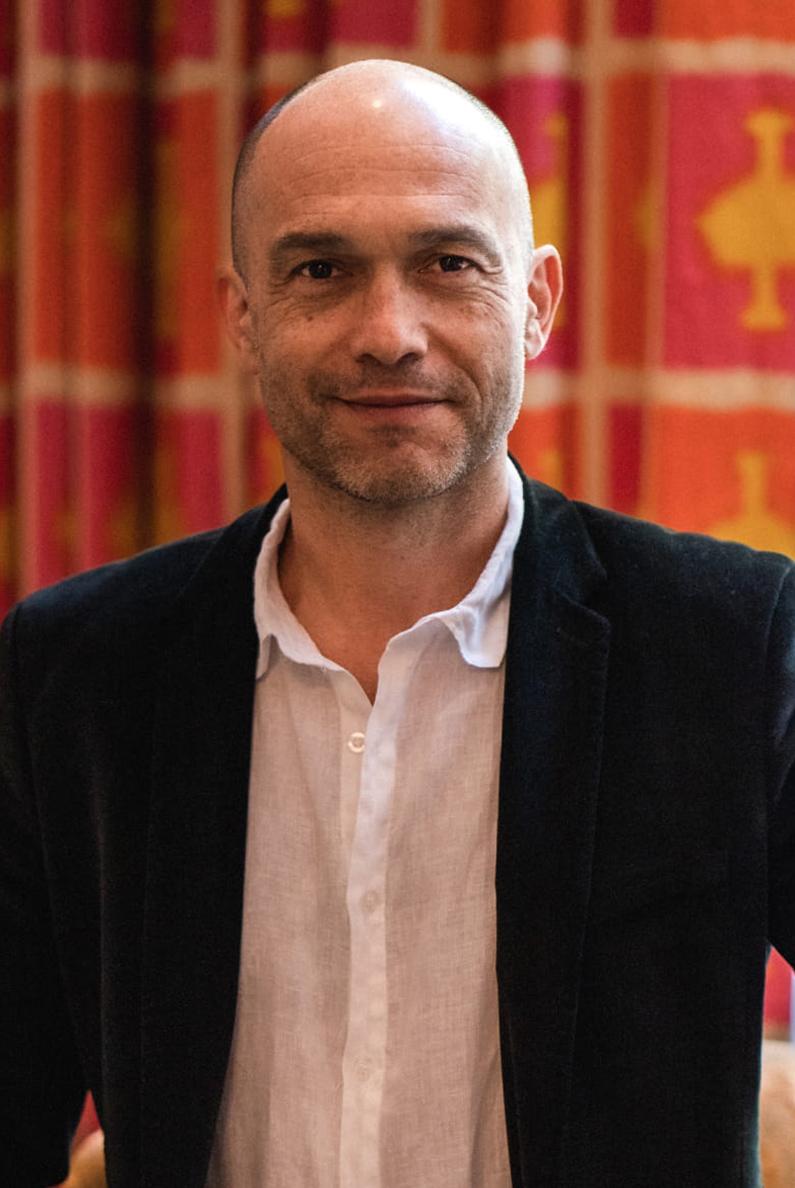

Silicon Valley uses “wartime CEO” to describe a leadership model for tough times. This makes sense. Startups are hard enough on a good day. Running your startup during a time of crisis, pandemic, or downturn can feel like a battle.
But in Israel, it’s literal. Throughout the last 6 months of war, Israel’s founders of startups at every stage have not just led; they’ve done so under circumstances most can scarcely imagine.
These are the real Wartime CEOs – and the leadership lessons we are about to share have been forged in fire.
We’ve said before that a CEO’s psychology is the greatest point of leverage in any company’s success or failure.
That’s why it is my aim that every founder, everywhere, can use the 9 leadership principles of The Wartime CEO to become even stronger leaders. In good times and in bad. Without going through actual war to learn it. Use these approaches every day, and make sure to keep using them in the hardest days when you face a real crisis – be it in your company, your industry, or the entire economy.
Special Thanks
To build the leadership principles in this essay, we interviewed nearly a dozen CEOs of Israel’s top multi billion-dollar companies. Their insights reveal not just strategies for business resilience, but also lessons in team unity, personal fortitude, and the relentless pursuit of belonging.
Thank you to the following CEOs: Avishai Abrahami at Wix, Oz Alon at Honeybook, Chen Amit at Tipalti, Tomer Bar-Zeev at Unity, Yoni Assia at eToro, Oriel Bachar at Papaya Gaming, Liron Damri at Forter, Shimon Elkabetz at Tomorrow.io, Zeev Farbman at Lightricks, Eynat Guez at Papaya Global and Shlomo Kramer at Cato Networks.
Restart Startup Nation: FAST
We at NFX have announced a new program called Restart Startup Nation: FAST. It is an ultra-fast emergency investment track to support early-stage Israeli startups, primarily in artificial intelligence and biotech.
The last year has taken a toll on Israel’s startup economy – judicial reform politics, a global slowdown, then war – all of which caused a slowdown in new companies and funding. But Startup Nation is a country of resilient entrepreneurs like the leaders profiled in this essay, and they are still building during tough times. That’s we’re offering the FAST opportunity to kickstart their efforts. Israel’s next generation of founders: apply here.
Principle #1: First, Take Care of Your Employees
One of the biggest differences you can observe about top leaders is that they care deeply – about the company, about their product, about their customers, and most of all about the people on their team.
“Every company claims it cares for its people, but war really puts it to the test,” says Zeev Farbman, Lightricks CEO. “Perks and team fun days during the good times are one thing; caring for those fighting and for their families is something completely different.”
For Wartime CEOs in Israel, their employees have been literally battling matters of life and death. Also at every company there were a number of employees called up for reserve duty, meaning they could not work for long stretches at a time. For Oriel Bachar, CEO at NFX-backed Papaya Gaming (nb: different from Papaya Global) this meant imbalances and bottlenecks in organic and squad teams, along with high stress, low energy levels, and people on edge. For Farbman at Lightricks, dozens of employees were called to reserves, which meant he had to redistribute the workload among fewer people, sometimes with only one-third of the team undrafted and available.
The new norm became more work, fewer people, and unimaginable stress across the board. And yet every single one of our Wartime CEOs prioritized their people.
From the very beginning of the war, Liron Damri at Forter realized they needed to fundamentally redefine their Maslow’s Pyramid: “The sense of personal security both physically and mentally are the very first things we must take care of. It meant that we provided maximum flexibility for our employees so they could put their and their loved one’s personal safety first. We have allowed people to work from home, supported reservists and their loved ones, and allowed the teams to volunteer in war rooms and support centers.”
Shimon Elkabetz, CEO of Tomorrow.io agrees: “Put your people in the center. If your team is strong and resilient, your business has higher chances of going through this. Also, people will remember that in crisis time, the company was a source of stability and sanity for them.
Principle #2: Prioritize Ruthlessly
Second only to caring for your people is determining what your absolute business priorities are and how you’re going to get them done.
Per Farbman from Lightricks: “Remember that focus and prioritization are key to the long term success of the business. Every startup is constantly reminded how crucial focus can be, but running a company during an all-out war takes this to a whole new level.” If you weren’t already a strong manager of priorities for your company, crisis times are going to eat you alive. Focus is the name of the game.
When times are especially tough, Farbman continues, “as CEO your job is to make sure everyone knows what needs to be done and what their role is in making it happen. You have to go back to basics, prioritizing what is key and putting everything else on the back burner. Unlike other times when you can make small adjustments, here you have to act much more swiftly. If your prioritization isn’t being felt, you’re not cutting deep enough.”
Remove the nice-to-haves, the features that don’t move the needle. Rethink which needle needs to move in the first place and exactly how your team is going to get it done no matter what. You don’t need a war to do that.
Principle #3: Work-as-a-Service
When the world is uncertain, Wartime CEOs provide a center of gravity for their teams.
For many, continuing to work provides a sense of purpose. Maintaining business operations can actually be a service to employees, giving them a chance to feel normal and stay connected to routine, to each other, and to a common purpose.
“I wanted people to be able to focus on their work because it represented normalcy. So we continued to work as much as possible,” says Wix CEO Avishai Abrahami of the initial weeks of the war in Israel. “What we learned is that if the leaders are back to work, people feel it is okay and accepted.”
“It is crucial to balance flexibility and sensitivity, with a gradual return to business and routines. We realized that if we can push at just the right intensity to bring attention back to work, it actually helped employees to better cope with the situation.” – Oriel Bachar, CEO of Papaya Games
Principle #4: Leading By Example Is Everything
“The number one lesson for me is that leading by example is everything.” – Oz Alon, CEO of NFX-backed Honeybook.
If there is only one idea you take away from this essay, make it this one.
The best leaders lead by example. It all starts with you. You’re the CEO, you’re the inspiration. You’re the one people look to. You have to become the type of person that you’d want leading yourself — the type of person who you would willingly follow.
This includes showing up and being part of the solution. You need to be there and you need to be seen. Get on Zoom and show your face. Be in the office. Text message employees proactively and personally. Find out what they are going through. Sometimes, this requires literally standing with employees in their times of need.
Wix’s Abrahami sums it up: “As a CEO you are leader. So lead. And if you are the kind of leader that does not abandon his team when things are hard, then make sure your team knows and feels it.”
Principle #5: Communication Is The Bedrock Of Trust
The wartime CEO maintains clear, transparent, and regular communication with their teams. This includes not just updates about the business but also ensuring that employees feel connected, supported, and part of a larger community. This builds a strong sense of trust and unity among their team members.
Some CEOs communicate at the beginning of a crisis and then drop the ball. Build a communication routine that employees can anticipate and rely on, and keep it going even when you think you’re past the worst part of your crisis. Chances are there are ripple effects to come for much longer than you think.
“It’s important to communicate with your teams even when you don’t have anything new to say,” advises Tomer Bar-Zeev, CEO of Unity. “Don’t underestimate the importance of having employees hear from you (and ideally see you) during turbulent times. A big part of what people look for is a sense of belonging and stability in a chaotic reality.”
Principle #6: What’s Your Business Continuity Plan?
No matter the type of crisis, when it hits, you need a plan. Assume things are going to be worse than you think and change your course to reflect the new reality. Look ahead and map out all the vectors of attack or disruption that your company could face. As Eynat Guez, CEO of Papaya Global put it: “You need to ensure you have mitigation for all potential scenarios.” It’s your job to reduce the disruption to your business and customers.
In the case of war in Israel, Chen Amit, CEO of Tipalti, temporarily moved a dozen key R&D employees to their London office. They needed to ensure business continuity from an engineering perspective in case there was further deterioration in Israel. Other companies like Unity had teams outside of Israel that were able to help shoulder some of the burden. “We were very clear in asking for their support and thanking them for stepping in.”
Every one of our Israeli CEOs moved swiftly to implement their plan in the first days of the war. They displayed creative organizational thinking as well as a sense of team spirit.
Don’t just tell your teams what to do. Ask them to rally for each other and for a purpose. The same goes for any company facing a disruptive and challenging situation.
Principle #7: Find The Goldilocks Zone
My colleague James Currier coined the term The Goldilocks Zone to describe a powerful mental model for top leaders. “The Goldilocks Zone is about finding something that’s neither too hot, nor too cold, but just right for your startup. It’s not about balance or finding the “middle.” In fact, what’s just right for you can sometimes be quite extreme. Instead, it’s about finding a customized and nuanced answer to each problem you are wrestling with, that fully takes your specific context into account.”
In all the major areas of being a Founder — cultivating yourself, managing employees, communicating with investors, navigating the market — learning to recognize the Goldilocks Zone is a non-obvious skill that distinguishes world-class entrepreneurs from the rest.
At any given time, a CEO is pulled in different directions. You need to address short-term needs as well as long-term goals; weigh worst-case scenarios against best-case outcomes; and strike a balance between realism and optimism – be it the routine day-to-day or during a crisis.
Short Term v Long Term. “Facing unprecedented challenges head-on, a wartime CEO makes tough decisions swiftly to protect the company and its people,” says Yoni Assia, CEO of eToro. “They balance short-term crisis management with long-term strategic vision, ensuring the company remains resilient and adaptable.”
“Take the time you need” v “Back to business.” There’s a spectrum and getting it right is very hard to do. “We initially asked people not to work at all and only focus on their families, and over the weeks very slowly increased our ‘ask’ of employees, making very clear that their safety, both physical and mental, were still the first consideration. – Unity
Worst-Case v Best-Case. “The Wartime CEO needs to be able to believe in the future, to run the worst case scenarios alongside the best-cases scenarios and to be ready for both. – Eynat / Papaya
Realism v Optimism. The Wartime CEO must do both. Navigating a company through crisis requires a delicate balance between being realistic about the challenges faced and maintaining an optimistic outlook on the future. This balance helps in making informed decisions while also inspiring hope and resilience among team members.
Principle #8: Practice Optimism
A few years ago I wrote that part of what makes a strong startup CEO is optimism. Be optimistic. Be optimistic about your team, about yourself, about your chances to win. Without this it’s hard to get yourself and others to stay motivated.
You have to know that you can build the future and add value in some big way. This vision can’t go away during times of crisis. In fact, this is when optimism might be the single best mindset you can bring to your team.
I’ve always liked this quote from Frank Herbet’s Dune:
“The mind can go either direction under stress—toward positive or toward negative: on or off. Think of it as a spectrum whose extremes are unconsciousness at the negative end and hyperconsciousness at the positive end. The way the mind will lean under stress is strongly influenced by training.”
Practice optimism in good times so that you can still access it when everything goes wrong.
Principle #9: The Company is a Community
“In times of crisis, your employees aren’t just the individuals that work for you. You have a level of responsibility for their families and the society in which you work and operate.” – Unity
It’s worth asking yourself: What if this were true all the time?
Employees who feel connected to a larger purpose and to each other are more motivated and engaged. Building a strong company culture that emphasizes shared goals and values is crucial in any business environment.
Leading In Hard Times
You don’t need to be in a war in order to live by the leadership principles of The Wartime CEO. These are not just crisis management strategies. These are exemplary leadership behaviors that can proactively enhance the resilience, agility, and teamwork of any organization, regardless of the external environment.
Adopting these approaches can equip startup founders and CEOs everywhere to navigate their own unique challenges more effectively, building companies that are capable of handling whatever is thrown at them – and come out even stronger.
As Founders ourselves, we respect your time. That’s why we built BriefLink, a new software tool that minimizes the upfront time of getting the VC meeting. Simply tell us about your company in 9 easy questions, and you’ll hear from us if it’s a fit.

